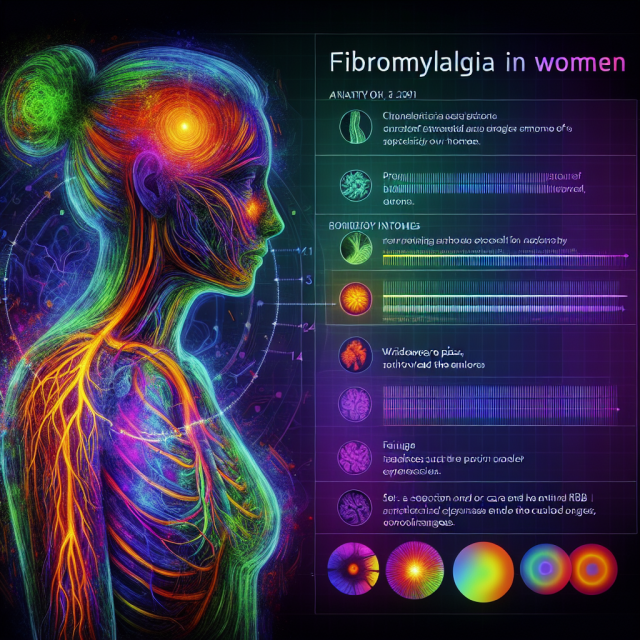
Introduction
Fibromyalgia in women is more than just aches and fatigue. It’s a chronic illness that can feel like an invisible storm, stealing energy, focus, and joy from everyday life. If you or a loved one are battling this condition, you’re not alone. Many women face this challenge every day, but with the right knowledge and strategies, it’s possible to regain control and find relief.
Table of Contents
What Is Fibromyalgia?
Fibromyalgia is a chronic condition characterized by widespread pain, fatigue, and cognitive difficulties, often referred to as “fibro fog.” While its exact cause remains unknown, researchers believe it stems from how the brain processes pain signals. This heightened sensitivity can make even mild discomfort feel overwhelming.
Why Fibromyalgia Affects Women More
Did you know that women are up to nine times more likely to develop fibromyalgia than men? Hormonal fluctuations, especially around menstruation, pregnancy, or menopause, may play a role. Additionally, societal expectations often push women to ignore their pain, delaying diagnosis and treatment.
Common Symptoms of Fibromyalgia in Women
Fibromyalgia doesn’t look the same for everyone, but some symptoms are particularly common in women:
- Persistent, widespread pain.
- Chronic fatigue that doesn’t improve with rest.
- Tender points on the body, often in the neck, shoulders, and back.
- Sleep disturbances and non-restorative sleep.
- Emotional challenges like anxiety or depression.
Diagnosis: Why It’s Often Misunderstood
Fibromyalgia is known as a “silent illness” because symptoms are invisible to others. Unfortunately, this can lead to skepticism, even among healthcare providers. Diagnosis often involves ruling out other conditions like arthritis or lupus and assessing symptoms against criteria from organizations like the American College of Rheumatology.
Treatment Options for Fibromyalgia
While there’s no cure, effective treatments can help manage symptoms. These include:
- Medications to reduce pain and improve sleep.
- Physical therapy to restore mobility and strength.
- Cognitive-behavioral therapy (CBT) to address emotional challenges.
Branded Drugs and Medications to Consider
Several medications are FDA-approved for fibromyalgia treatment, including:
- Lyrica (pregabalin): Reduces pain and improves sleep.
- Cymbalta (duloxetine): Helps with both pain and mood disorders.
- Savella (milnacipran): Specifically designed for fibromyalgia symptom relief.
Always consult your doctor to find the right medication for your needs.
Lifestyle Changes That Make a Difference
Simple lifestyle changes can significantly improve fibromyalgia symptoms:
- Regular exercise, like walking or yoga, can reduce pain over time.
- Sleep hygiene, including consistent bedtimes and relaxing routines, is crucial.
- Healthy eating, focusing on anti-inflammatory foods, supports overall well-being.
Managing Pain and Fatigue
Think of managing pain and fatigue like juggling: it’s all about balance. Alternate activity with rest to avoid overexertion. Heat therapy, gentle stretching, and even massage can provide immediate relief.
Mental Health and Fibromyalgia
Living with fibromyalgia can take a toll on your mental health. It’s common to feel frustrated, anxious, or even hopeless. That’s why addressing emotional well-being is just as important as managing physical symptoms. Talking to a therapist or joining a support group can make all the difference.
Support Networks for Women
Having a community that understands what you’re going through is invaluable. Online forums like HealingWell offer support and advice. Connecting with others can provide not just practical tips but also emotional relief.
Why Self-Care Is Key
Self-care isn’t selfish—it’s survival. Taking time for yourself, whether through meditation, journaling, or a favorite hobby, can lower stress levels and improve your ability to cope with fibromyalgia.
When to Seek Professional Help
If your symptoms worsen or begin interfering with daily life, it’s time to seek professional help. Rheumatologists, neurologists, and pain specialists can offer advanced treatment options tailored to your needs.
Conclusion
Fibromyalgia in women may feel like an uphill battle, but you don’t have to fight it alone. With the right combination of medical care, lifestyle changes, and emotional support, relief is within reach. Take it one step at a time—you’re stronger than you think.
FAQs
1. Is fibromyalgia more common in women than men?
Yes, women are significantly more likely to develop fibromyalgia due to hormonal and genetic factors.
2. Can fibromyalgia go away on its own?
While fibromyalgia is a chronic condition, symptoms can improve with proper treatment and lifestyle changes.
3. What foods should I avoid if I have fibromyalgia?
Avoid processed foods, sugary snacks, and caffeine, as they can trigger inflammation and worsen symptoms.
4. Is fibromyalgia hereditary?
Research suggests a genetic link, meaning it may run in families.
5. Can exercise really help with fibromyalgia?
Yes, low-impact exercises like swimming or yoga can reduce pain and improve overall health.





